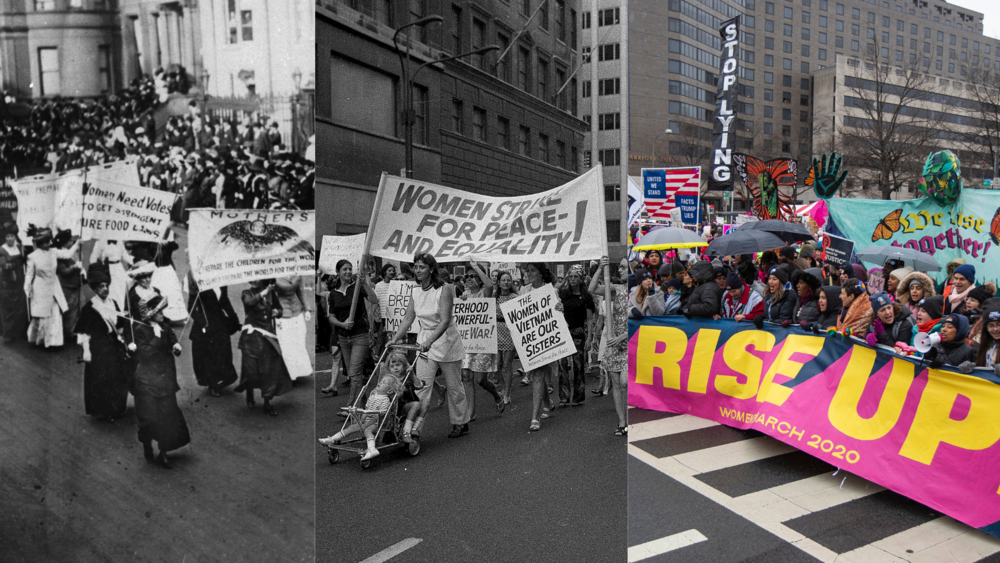
Caption
On the left, suffragettes marching in Washington D.C. in the spring of 1917; in the middle, women demonstrators in support of women's liberation march in New York City in Aug. 1970; on the right, participants of the Women's March gather to march around the White House in Jan. 2020, three years after the first march in 2017.
Credit: AP Photo; AP Photo; AP Photo/Manuel Balce Ceneta


